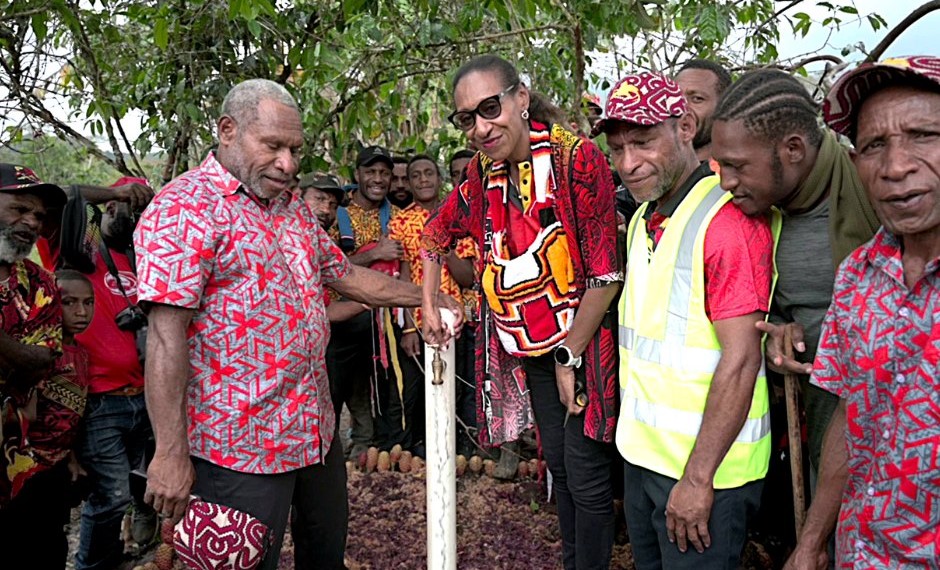For the people of Munum Eka it was not only an Independence Celebration marking the country’s 49th anniversary on the 16th of September, it was also a moment to celebrate access to proper facility of safe drinking water and sanitation.
This was made possible through a Digicel Foundation funded WASH (Water, Sanitation, and Hygiene) project to bring clean, safe drinking water and improved sanitation to over 3, 000 people across four communities and two schools in the Anglimp-South Waghi District of Jiwaka Province.
The celebration was a testament to the strength of a united community, one that has risen above challenges and embraced the power of partnership.
Established in 2014 informally, Munum Eka Community Development Association (MECDA) began as an interdenominational fellowship group bringing together churches such as the Catholic Church, SDA, and the Four Square Church among many, but their mission went far beyond fellowship—it was about uplifting the community through development and livelihood projects that promote social and economic well-being.
“That was my dream, to gather all the churches together and neighboring communities to come together to build unity to stay together, to avoid problems when we have fellowships, you know when we stay together, we will not fight and do all these kinds of things,” shared Markus Malt, the Association’s Vice Chairman.
Through the years, MECDA has spearheaded projects that have greatly improved the quality of life in Munum Eka—building feeder roads, bridges, and rural electrification, while encouraging self-reliance through piggery, fishery, and vegetable farming.
Yet, despite these advancements, one critical issue remained—safe drinking water.
With polluted creeks and a lack of proper sanitation facilities, waterborne diseases were common, particularly affecting school children.
Recognizing the urgency of the situation, MECDA formally registered as a legal entity, applied for a K50, 000 funding grant from Digicel Foundation’s Community Grants Program – a program that gives communities throughout PNG a chance to fund meaningful initiatives in the field of education, health and leadership.
“The main vision for us wanting to do the project is because of the lack of access to clean and safe drinking water,” said MECDA’s Acting Chairperson, Elijah John.
“We have a lot of fresh creeks within the village but most of the creeks have been polluted by landslides, there’s been a lot of gardening activities upstream and we’ve seen a lot of kids having skin diseases and some viral diseases within the communities,” he further explained.
“This WASH project will change that, it will ensure access to clean drinking water and improved sanitation, directly addressing the health issues that have plagued these communities.”
“It represents hope, progress, and the potential for a healthier and safer future.”
At the launch event, which coincided with Independence Day, Digicel PNG Foundation CEO Serena Sasingian spoke about the power of community driven development.
“It is fitting that we launch this important project on Independence Day, as it represents the power of communities to take control of their own development.”
Chairman John highlighted that the Munum Eka Community Development Association embodies the spirit of independence—self-reliance, unity, and the belief that they can shape their own destiny.
The Munum Eka WASH Project is part of Digicel Foundation’s continued commitment to improving education, health, and sustainable development in Papua New Guinea. Since 2008, the Foundation has invested over K176 million into health and education projects across all 96 districts of PNG, including K2.5 million in Jiwaka Province alone.
As the people of Munum Eka move forward with their WASH project, they do so with the pride of knowing they are creating a brighter, healthier future for their children and community.
They have proven that when people come together with a shared vision, they can overcome any obstacle—and that is something they truly celebrated on the 16th of September 2024.

